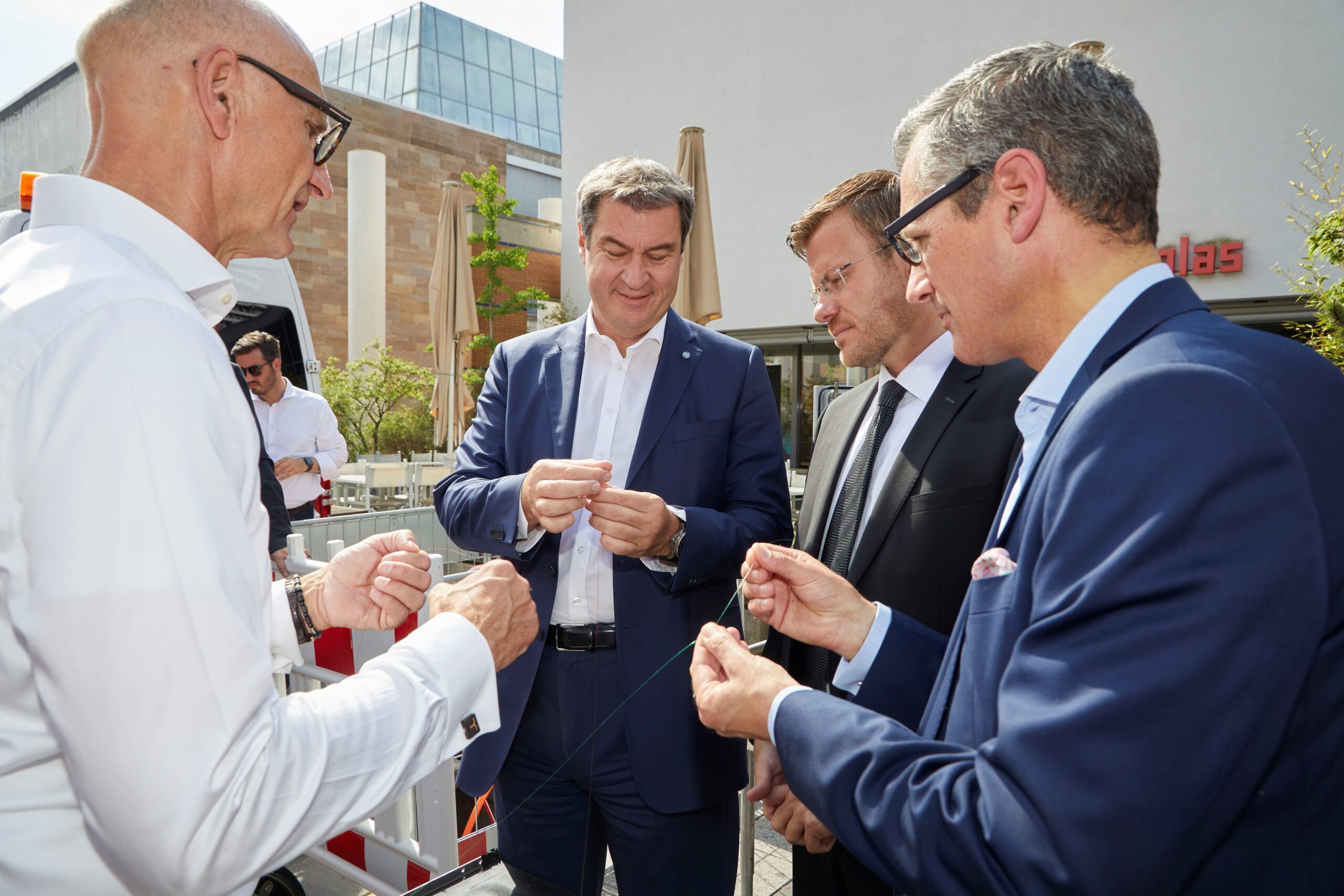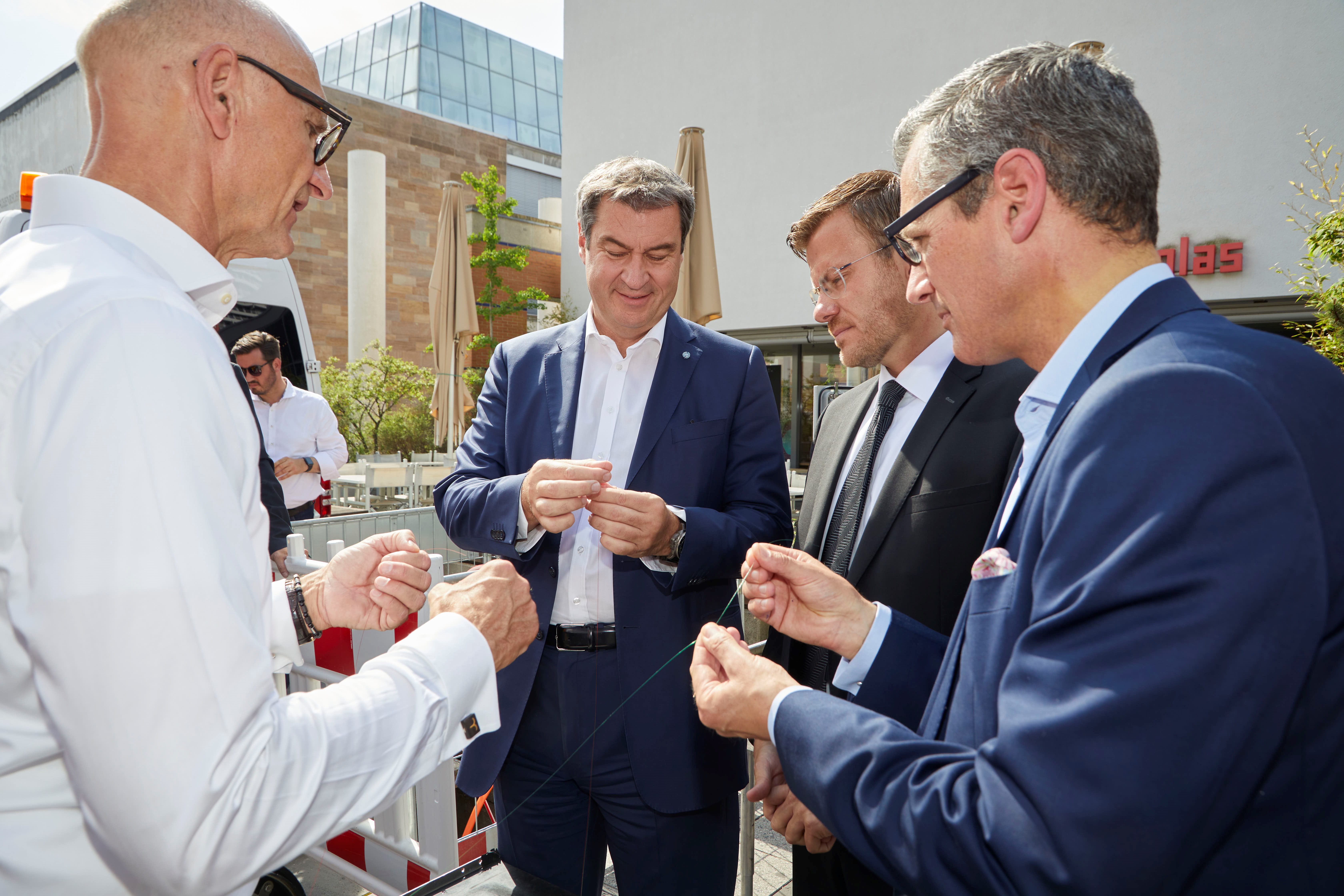Fiber optics: Providers want to raise prices soon


At Fiberdays 22, which took place on June 14th, 2022, industry representatives explained that fiber optic connection providers intend to raise prices soon.
Depending on the provider, you currently pay between 70 and 90 euros per month for an Internet contract with fiber optics and 1,000 Mbit/s download. In the future, such contracts are to become more expensive, as Jürgen Hansjosten, managing director of the infrastructure fund Infrafiber, explains. In addition to increased costs for the expansion, a double-digit inflation rate is expected in the coming year, so that there would be a “compulsion” to let prices rise. Since 1997, the cost of stationary Internet in Germany has fallen year-on-year, with the exception of 2002. The statements were made at the Fiberdays 22 conference held by the Federal Association of Broadband Communications on June 14 in Wiesbaden.
By 2030 there should be fiber optics nationwide in Germany
As the sales manager of Deutsche Giga-Netz, Soeren Wendler, explains at Fiberdays 22, it is assumed that a number of smaller providers will soon die. By 2025 at the latest, many regional Internet providers will no longer have a chance of surviving on the market. If Stefan Holighaus, member of the management of the fiber optic provider DNS:NET, has his way, a large provider will start with price increases first. All other providers will follow suit within three months. In general, many Fiberdays 22 participants are critical of the fact that broadband expansion is to be accelerated so quickly. Finally, there is a shortage of skilled workers on the construction and official side. In addition, the construction costs are currently rising due to inflation. Without reforms in licensing, there could also be a tough struggle to expand fiber optics. There are uncertainties in the industry regarding future government funding for gigabit expansion. The goal is to have fiber optics everywhere in Germany by 2030.
Since mid-2021 there have been around 29.3 million stationary Internet connections throughout Germany that are – theoretically – gigabit-capable. Both the cable connections according to Docsis 3.1 and the fiber optic cables are combined here. A year later, the number of gigabit-capable stationary Internet connections has risen to 35.8 million, with more than 10 million of these being fiber optic connections.
Also worth reading: Fiber optic expansion: Deutsche Telekom announces FTTH expansion for at least 260,000 households
Collection on rising prices in fiber optic connections:
- At Fiberdays 22, representatives of the telecommunications industry stated that there will soon be rising prices for fiber optic users.
- The providers would have to pass on the rising costs for the expansion and inflation, which could be in the double digits next year, to the end customers. Fiber optic contracts with one gigabit currently cost between 70 and 90 euros per month.
- A consolidation on the market is expected by 2025 at the latest, so that regional providers will no longer survive.
- By 2030 there should be a nationwide fiber optic network in Germany, but it is unclear what the state support will look like. There are currently more than 10 million fiber optic connections in Germany.
Source: hot
Reference-www.pcgameshardware.de